Let’s see the detailed benefits and risks of the most nutritious vegetables for Pregnant women.
Carrots, Pumpkin, Tomatoes, Sweet Corn, Onions, Beetroot, Potatoes, Spinach, Garlic, Bitter Gourd, and Eggplant.
Best Nutritionist in Bangalore
Consult 19-year-experienced Chief Nutritionist Vasanthi, in person at HSR, Koramangala, Bellandur, Haralur, Electronic city, or online across India.
The most nutritious vegetables for Pregnant women are green leafy vegetables and colorful vegetables in red, yellow, orange, and green colors. These super vegetables aid in healthy pregnancy and eases the discomfort faced during pregnancy.
- Folic acid/folate is a B vitamin that is found in dark green leafy vegetables, citrus fruits, dried beans, lentils, peas, and fortified cereals.
- Increase the consumption of foods rich in vitamin C like tomatoes, bell peppers, green peas, broccoli, and sweet potatoes to strengthen the immune system and for a rich source of energy.
- Vegetables like tomatoes, bell peppers, peas, and turnips are rich in vitamin C which aids in improving the immunity of the mother and fetus and the absorption of iron.
- Vegetables help in developing a healthy birth weight for the baby, prevent the risk of anemia, help in controlling blood pressure, and prevent nutritional deficiencies.
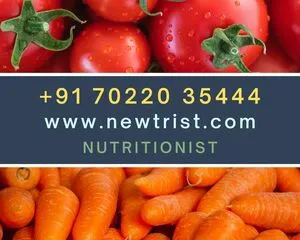
Safely Consume Nutritious Vegetables for Pregnant Women
- Avoid canned and preserved vegetables.
- Eat organic vegetables to ensure chemical-free in your diet.
- Wash the vegetables well under running tap water to remove the impurities from soil and pesticide usage.
- Fresh vegetables can be incorporated in a variety of ways into the meal like curries, soups, stir-fry, and grilled forms.
Table of Contents
The top benefits of eating Carrots during Pregnancy
Carrots are loaded with vitamins, minerals, and fiber that can do wonders for the body of pregnant women. Carrots can be eaten in cooked/raw form.
Increased vision:
Carrots help in improving your eye health as it is a rich source of vitamin A. Including carrots in the diet of pregnant women has a positive impact on fetal eye development.
Boosts immune system:
Intake of carrots helps in strengthening the immune system as the immunity level drops as pregnancy progresses. The vitamin C content also helps in the absorption of iron in the body which prevents anemia.
Aids in the development of the fetus:
The calcium content and beta-carotene present in carrots support the formation of bones and teeth in the fetus.
100 grams of carrots provides 33 mg of calcium which is essential for the formation of bones in the early stages of the baby.
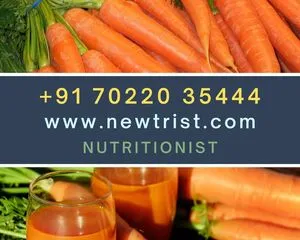
Relieves constipation:
Including fiber-rich foods like carrots helps in relieving constipation which is one of the major problems faced during pregnancy. Carrots help you to stay away from digestive problems by consuming them regularly.
Prevents pregnancy cramps:
Pregnant women are more prone to muscle cramps and stiffness that cause discomfort during pregnancy. The phosphorus content of carrots helps in proper muscle functioning and prevents cramps.
Manages hypertension during pregnancy:
Increased gestational hypertension can cause complications for the mother and unborn baby. Carrots reduce the risk of hypertension and the difficulties brought on by high blood pressure.
The consumption of carrots helps in the formation of bones and cartilage in the unborn baby as it is a rich source of manganese. Manganese can be made available to the body by including carrot juice in the diet of pregnant women.
Prevents nervous system abnormalities in fetuses:
Carrots are rich in vitamin B and folic acid which aids in the development of the fetus’s brain and nervous system. The risk of neural birth defects such as spina bifida can be reduced by eating carrots regularly.
Carrots are also a rich source of nutrients that makes kids wiser and healthier.
Prevents cancer:
The antioxidant-rich food reduces the impact of free radicals and safeguards the mother and baby from the threat of cancer. Selenium and beta-carotene inhibit the growth of cancer cells and minimize the risk of cancer.
The nutritional value of Pumpkin for Pregnant Women
This colorful vegetable is rich in antioxidants, vitamins A, B6, and C, iron, and zinc. 100 grams of pumpkin contain 26 calories with zero cholesterol and saturated fats.
Pumpkin provides ample nutrition to the mother and baby as it is loaded with carbohydrates, proteins, vitamins, and minerals.
Manages blood sugar levels:
Pumpkins are a great addition to the pregnancy diet to manage blood sugar levels. Pumpkins should be consumed plain without the addition of sugar to reap the maximum benefits.
The pumpkin seeds control insulin levels and help in managing gestational diabetes in pregnancy.
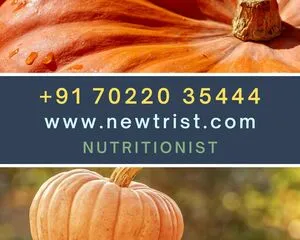
Prevents constipation:
Constipation is a common complaint during pregnancy. The hormonal changes can cause constipation as it alters digestive functions.
The protein and fiber content of the pumpkin ensures proper functioning of the digestive system and makes you free from constipation.
Alleviates abdominal cramps:
Pumpkins can be consumed in any form to ease pregnancy discomforts. Pumpkins are a great food to control pregnancy cramps.
Apart from pumpkins, its seeds also contain numerous health benefits that control mood swings and strengthen the immune system.
It is a rich source of omega-3 fatty acids and healthy fats which keeps your heart healthy and assists in fetal brain development.
Eating pumpkin seeds promotes good sleep. The tryptophan present in pumpkin seeds gets converted into melatonin, a sleep hormone that induces sleep.
The top benefits of eating Tomatoes during Pregnancy
Tomatoes are rich in vitamin A, vitamin C, vitamin K, folate, and potassium.
The vitamin A content of tomatoes helps in tissue regeneration after childbirth and vitamin C helps in strengthening the immune system and the absorption of iron in the body.
The risk of hemorrhage and blood loss can be reduced by consuming sun-dried tomatoes due to their vitamin K content.
Cell damage, hypertension, and congenital deformities can be prevented by lycopene, a potent antioxidant present in tomatoes.
Nicotinic acid (also known as Chlorogenic acid) lowers bad cholesterol and maintains a healthy heart.
Tomato is a fruit, we call them vegetables for practical purposes. Consuming tomatoes is good for the mother and the baby.
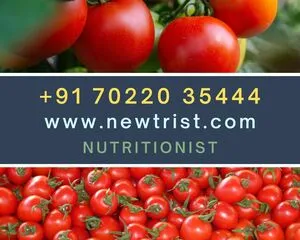
Improves the circulation of the blood:
Blood purification and circulation are important functions of tomatoes.
Prevents cancer:
The Lycopene content present in tomatoes fights against cancer-causing radicals and protects expectant mothers from rectal and cervical cancers.
Manage gestational diabetes:
Regular tomato consumption reduces oxidative stress associated with gestational diabetes.
Overconsumption of tomatoes may lead to heartburn, kidney problems, acidity, migraine, and bladder issues.
The nutritional value of Sweet Corn for Pregnant Women
Sweet corn is a highly nutritious food that is rich in vitamins and minerals. It is rich in vitamins A, C, B1, and B5, magnesium, and dietary fiber. Many women find the sweet taste of corn appealing as it is very delicious.
The fiber content of the corn helps in alleviating constipation and makes pregnant women enjoy their pregnancy.
Corn is rich in folic acid which lowers the risk of congenital abnormalities like Spina Bifida. 60 grams of folate is available in a single serving of corn.
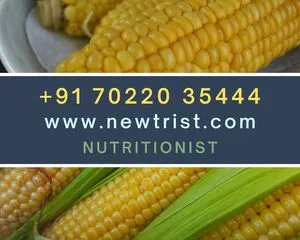
Significant amounts of vitamin B12 present in sweet corn are crucial to prevent anemia during pregnancy. Vitamin B12 helps in boosting the immune system during pregnancy.
The antioxidant content of corn helps in improving the vision of the developing baby. The antioxidants also prevent the occurrence of breast cancer. The ferulic acid present in the corn takes charge of lowering the risk of tumors.
Corn helps in maintaining healthy skin, supports the growth of mucus membranes in the fetus, and improves memory power in expectant mothers.
Zeaxanthin, a carotenoid found in corn possesses oxidative properties that prevent macular degeneration of the eye.
The thiamine content of corn is required for energy metabolism and the proper functioning of the muscle and nervous system. Thiamine plays a major role in the growth of the fetus and the formation of memory cells.
Potassium is found in abundance in corn which is an essential mineral required during pregnancy. A large serving of corn contains about 360 mg of potassium.
According to studies, consuming “corn husk oil” lowers the body’s absorption of cholesterol, hence lowering plasma LDL levels.
The nutritious advantages of Onions during Pregnancy
Onions are an excellent source of vitamin C, B6, calcium, magnesium, iron, potassium, and fiber.
Onions contain folic acid which stimulates the production of new healthy cells. Onions help the expectant mothers and the unborn child’s immune system function more effectively.
Onions possess anti-inflammatory, anti-cancerous, and anti-cholesterol properties and are of great medicinal value. Onions protect against colds, flu, and psoriasis.
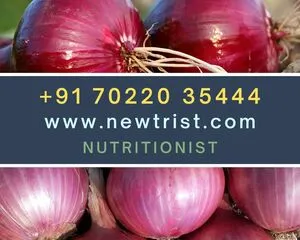
Onions can be consumed in moderate amounts either in raw or cooked form to avail their various health benefits.
Onions are rich in organic sulfur compounds that inhibit the development of free radicals. They help to prevent a variety of malignancies including colorectal and stomach cancers.
The vitamins A, C, and E found in onions help in the maintenance of healthy skin and hair. It also prevents premature aging and hair loss.
Raw onions contain dietary fiber that aids in the digestion process. The intake of onions during pregnancy lowers the risk of gastric ulcers and improves gastrointestinal health and provides relief from constipation.
The sulfur compounds and quercetin found in onions regulate blood sugar levels and help in preventing gestational diabetes.
Stress management and enhanced sleep can be achieved with prebiotics present in onions.
Onions contain folate, which works to combat pregnancy depression by limiting the body’s production of homocysteine.
A high homocysteine level can interfere with the body’s release of feel-good hormones resulting in mood swings, stress, and depression.
Onions are rich in potassium and phytonutrients that can help prevent issues from hypertension, eating them while pregnant may assist in regulating blood pressure.
Beetroot is a delicious and nutritious addition to your Pregnancy diet
Beetroot is an excellent choice of vegetable as it is highly nutritious. The antioxidant-rich vegetable helps in improving immunity and protects the mother and baby against infections.
Beetroots offer you and your baby additional health benefits in addition to their deliciousness and nutritional value. One cup of beetroot contains 4 grams of fiber which constitutes about 14% of the recommended daily value.
Beetroots contain good amounts of potassium that balances the electrolytes and regulates metabolism. Beetroots play a vital role in regulating blood pressure during pregnancy. The nitrates in the beetroot increase the blood flow across the placenta.
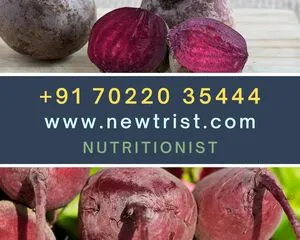
Beetroots contain betaine, an anti-inflammatory agent that helps in preventing inflammation and swelling which is a common problem encountered during pregnancy.
Although beetroot is sweet, it is a low-glycemic index food that takes more time to convert into glucose and gets absorbed in the blood.
Beetroot is rich in folic acid which is an essential nutrient during the developmental stages of the baby’s brain and spinal cord.
Consult with our nutritionists as the requirement for folic differs for some high-risk pregnancies.
Beetroots contain betacyanin which plays a major role in the detoxification process of the liver and blood. It promotes a healthy pregnancy by eliminating toxins and fatty acids from the body.
The absorption of iron is enhanced with the vitamin C content present in the beetroot which helps in the prevention of anemia.
Limit your beetroot consumption if you are prone to kidney stones as beetroot is an oxalate-rich food.
What are the benefits and risks of having Potatoes during Pregnancy?
Potatoes are warehouses of dietary fiber, vitamins, minerals, and essential nutrients for pregnant women. Potatoes are starchy foods rich in carbohydrates, so moderate consumption is advised to avoid ill effects during pregnancy.
Helps in reducing acidity:
Gastric acidity can be greatly reduced by consuming mashed potatoes. It proves beneficial for those with digestive and acidity problems.
Vitamin-rich:
The vitamin C content of potatoes helps in faster wound healing and improves immunity. Vitamin C also helps in the absorption of iron from foods.
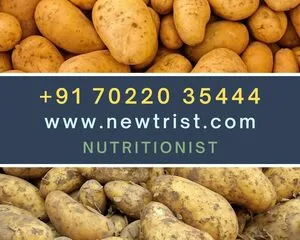
Folic acid-rich:
Folic acid is a vital nutrient needed for the development of the brain and nervous system in the growing fetus. Including folic acid-rich foods reduces the risk of miscarriage and prevents congenital deformities in the baby.
Full of energy:
Potatoes are rich in carbohydrates that provide the needed energy during pregnancy. Energy is needed to stay active and exercise and prevent unnecessary weight gain due to the intake of starchy foods.
Maintains heart health:
Potassium is found in abundance in the skin of potatoes that helps in reducing blood pressure, strokes, and hypertension.
For a healthy pregnancy while using potatoes, follow the below tips:
- Eating potatoes that contain green spots/patches can cause gastrointestinal issues like diarrhea and vomiting. The green patches indicate the presence of toxic compounds that lead to congenital disabilities like spina bifida and anencephaly.
- Overweight and obese mothers should refrain from eating potatoes as they are prone to becoming more obese.
- Avoid deep-fried potatoes, and baked potatoes with butter and cheese, and choose boiled and steamed forms of potatoes.
- Buy potatoes that are free from cuts, blemishes, and sprouts, and wash the potatoes well under running tap water before cooking.
Is it safe to have Spinach during Pregnancy, what are the benefits and risks?
The Golden food for pregnant women is Spinach which is loaded with vitamins and minerals. Consumption of folate-rich foods is crucial during the first few months of pregnancy to prevent neural tube defects in pregnancy.
Spinach is another food rich in iron which is a vital nutrient during pregnancy. The iron and folic acid requirement increase during pregnancy as there is a 30-50% rise in the blood volume. Spinach aids in the synthesis of red blood cells and lowers the risk of anemia.
Restrict the intake of spinach if you are prone to kidney stones.
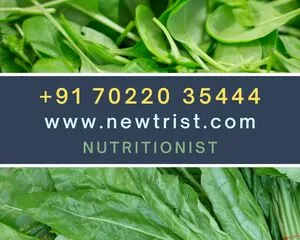
Spinach is a rich source of vitamins A, C, E, and K, potassium, magnesium, and copper. 100 grams of spinach provides 28.1 mg of vitamin C, 99 mg of calcium, 558 mg of potassium, 23 kcal, 79 mg of magnesium, 79 mg of sodium, and 49 mg of phosphorus.
Spinach helps in lowering stress and depression during the gestational period. In addition to promoting bone growth, calcium also enhances nerve and muscle function and aids in the prevention of blood clots in the arteries.
Daily consumption of spinach helps to meet the daily requirements of vitamins for the mother and fetus. Spinach provides the essential B vitamins that are needed for the development of the nervous system of the baby.
Cooked spinach is a good source of vitamin E during pregnancy. Vitamin E helps enhance vision, reduce the risk of free radical damage, and maintain healthy cholesterol levels throughout pregnancy.
High blood pressure is a typical issue during pregnancy, you can manage your blood pressure by adding spinach to your diet. Spinach’s nitrate is well known for helping the body control blood pressure levels.
Vitamins B1 and B2 are plentiful in spinach. Both of these vitamins are crucial for the fetus’s nerve system and visual development. A disease known as “peripheral neuropathy” might result from a vitamin B1 deficiency in your pregnant diet.
A good source of protein is spinach. Protein is necessary for the body to produce amino acids, repair damaged cells, and maintain healthy skin, muscles, and bones.
Spinach can partially satisfy your protein needs. Therefore, eat this lush green vegetable to stay healthy.
Balancing the benefits and risks of Garlic during Pregnancy
Garlic is a commonly used ingredient in most recipes that offers a lot of medicinal benefits. Garlic plays a vital role in managing blood pressure.
Moderate consumption of garlic is advised during the first trimester of pregnancy as too much garlic may affect the health of the fetus.
Consumption of 400 mg of garlic daily for 9 weeks reduces oxidative stress in pregnant women who are at risk of preeclampsia.
Garlic is regarded as a “heart-friendly herb” that reduces the risk of heart problems and the allicin present in garlic helps in balancing cholesterol levels.
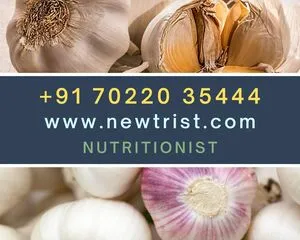
Garlic consumption improves your immune system and helps in fighting against various infections. Garlic prevents infections like colds and flu and maintains the health of the baby.
Consumption of raw garlic on an empty stomach helps in reducing infections and prevents catching colds.
Garlic helps to lower fatigue in pregnant women. Garlic provides relief from tiredness, vomiting, and dizziness during pregnancy.
Garlic can be highly beneficial when consumed in moderation. 3-4 cloves of garlic per day are the recommended amount of garlic intake.
When garlic is consumed in excessive amounts, it can result in low blood pressure and blood thinning which is beneficial for women with preeclampsia conditions.
If you are under medications of insulin and other anti-coagulation medicines, it is better to limit the intake of garlic.
Consult with our nutritionists to know about the benefits and side effects of eating garlic during pregnancy and the amount of garlic intake based on your health issues.
The risks of consuming Bitter Gourd during Pregnancy
Bitter gourds are a highly nutritious vegetable that is commonly used in many ways in cooking. Bitter gourd consumption can cause certain side effects in pregnant mothers.
The destruction of red blood cells (Favism) can be experienced by some women which are due to the vicine present in the bitter gourds.
Favism can lead to anemia and cause an improper supply of iron to the developing fetus. It is advised to avoid bitter gourds during pregnancy.
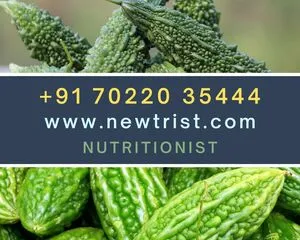
Bitter gourds contain quinine, Momordica, and glycosides which deposits as toxins in the body and cause tiredness, fatigue, nausea, intestinal pain, and problems with vision.
Consuming bitter gourds can cause stomach aches, digestive issues, diarrhea, and pain in the abdomen. Bitter gourd juice induces contractions and bleeding during pregnancy and put the baby at risk.
Therefore, it is regarded as unsafe to consume for expectant mothers.
The risks of consuming Eggplant during Pregnancy
Can we include eggplant in the pregnancy food chart, is eggplant good or bad for pregnancy?
Eggplants are rich in phytohormones that are needed for treating amenorrhea and premenstrual syndrome. Eggplants are capable of stimulating menstruation as it works as diuretics.
It is often advised to stay away from eggplants when you are pregnant. If you are allergic to eggplants, it is better to avoid them.
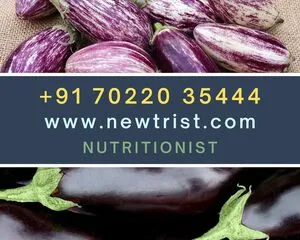
Pregnancy FAQs
Are tomatoes safe to eat during pregnancy?
Tomatoes are extremely nutritious vegetables (fruit) to include in the diet of a pregnant woman. Tomatoes are abundant in vitamin C, antioxidants, fiber, essential vitamins, and minerals that promote the formation of healthy body parts in the developing baby.
Refrain from consuming too many raw tomatoes as they may exacerbate heartburn in some pregnant women.
Can I eat baby corn during the first trimester?
Baby corn contains amazing amounts of folic acid which is a vital nutrient during the developmental stages to prevent birth defects in the baby. Baby corn is also a fiber-rich source that prevents constipation and aids digestion during the first trimester.
Baby corn contains potassium that helps to maintain a balance of blood pressure during pregnancy. it is also a rich source of vitamins A, B, E, and other minerals.
Can I eat garlic or onion when pregnant?
Garlic and onions are rich sources of antioxidants that can be enjoyed in moderate amounts during pregnancy. Garlic may cause heartburn in a few pregnant women which is a common symptom during pregnancy.
Garlic adds wonderful flavor and aroma to the dishes. Onions are rich in vitamin C, B6, and minerals such as iron, phosphorus, magnesium, and potassium which are essential during pregnancy.
Can I eat gourd during pregnancy?
Gourd vegetables such as ash gourd, bottle gourd, snake gourd, ridge gourd, and bitter gourd are excellent sources of fiber that regulates bowel movements for a pregnant woman.
Bottle gourd and ash gourd contains good water content that keeps you hydrated. Bitter gourd contains a relatively high-fiber content that lowers the cravings for high-calorie foods. Intake of karela during pregnancy fights gestational diabetes.
Can I eat spinach every day during pregnancy?
A pregnant woman can find enormous amounts of folate when consumed spinach daily. The high folate content prevents neural tube defects of the brain and spinal cord in the developing fetus. Enjoy spinach daily in your diet in soups, gravies, salads, and stir-fried forms.
Be cautious to purchase pesticide-free spinach and wash the leaves well under running water to remove dust and impurities before cooking.
Can a pregnant lady eat pumpkin seeds?
Pumpkin seeds are a great addition to a pregnant lady’s diet as it provides ample amounts of protein and fiber. One serving of roasted pumpkin seeds keeps you full for longer periods and the presence of zinc in pumpkin seeds strengthens the immune system and helps in the management of mood swings for an expecting mother.
Pumpkin seeds can be thrown over soups, salads, and smoothies for a crunchy texture.
Does beetroot increase hemoglobin during pregnancy?
Yes, regular consumption of beetroot enhances hemoglobin during pregnancy. Beetroot is a rich source of iron, folic acid, potassium, vitamins, and minerals that promotes the formation of red blood cells in the body.
Beetroot increases the oxygen flow to the parts of the body. Drinking beetroot juice daily ensures healthy hemoglobin levels and keeps gestational hypertension at bay. Consistent consumption of beetroots lowers the risk of anemia.
Does potato cause gas during pregnancy?
Carbohydrate foods such as potatoes turn into resistant starch when cooked which causes bloating and gas formation. Reheating dishes made from potatoes causes adverse effects in pregnant women.
However, potatoes can still be considered nutritious when consumed in limited quantities. Potatoes provide energy to fight fatigue and nausea and fulfill the additional need for calories during pregnancy. Avoid potatoes if you find them sprouted and green spots on the skin of the potatoes.
How many carrots can I eat a day?
Carrots are rich in vitamin A and calcium that supports bone and teeth development of the fetus. The fiber content of carrots aids healthy digestion and prevents constipation which is a common symptom during pregnancy.
Carrots contain vitamin C that aids in the absorption of iron and strengthens the immune system and prevents from acquiring infections during pregnancy. 1-2 carrots can be consumed either in its raw form or cooked form.
How much beetroot is safe in pregnancy?
Beetroots are excellent sources of iron that purify and detoxify the blood and keep anemia at bay. Beetroots are an excellent addition to a pregnant women’s diet with a rich source of folic acid that lowers the risk of birth defects in the developing baby.
Beetroot soup, beetroot salad, beetroot raita, and stir-fried beetroots are a few variations to be consumed. About 2 beetroots a day is beneficial for an expecting mother.
Are carrots and cucumbers good for a pregnant woman?
Carrots and cucumbers are high-fiber foods that are good foods for a pregnant woman. Carrots and cucumbers are low in calories and high in nutrients.
These foods make you refreshing and help to stay away from morning sickness such as nausea during the early weeks of pregnancy. consume carrots and cucumbers in moderation as these vegetables may cause gas formation and frequent urination due to their high fiber and water content.
Is eating raw tomatoes good for pregnancy?
Raw tomatoes are considered safe during pregnancy when consumed in limited quantities. Tomatoes may be the warehouse of nutrients but consuming raw tomatoes may lead to heartburn in some women.
Raw tomatoes help to maintain a healthy heart, improve blood circulation, and help in the effective management of gestational diabetes. Women who develop gastric acid reflux should refrain from eating raw tomatoes.
Are fried potatoes good in early pregnancy?
Take a step back from consuming fried foods such as French fries and other forms of fried potatoes. Fried potatoes may aggravate the symptoms during early pregnancy.
Fried foods contain high amounts of saturated fats, sodium, and calories that may lead to obesity and other complications during pregnancy. Swap for baked and boiled potatoes instead of fried ones for healthy eating habits.
Is onion good for the first trimester?
The antioxidant-rich onions are good for the first trimester. Onions consist of water-soluble vitamins that support cell growth and metabolism for pregnant women. The presence of vitamin B6 in onions aids in the formation of red blood cells which prevents the risk of anemia during the gestational period. Onions are rich sources of potassium that possess blood pressure-lowering effects.
Is onion good for a pregnant lady?
Onions are good choices for a pregnant lady. Onions add flavor and crunchy texture to the dishes with varied health benefits. Onions improve gut health by improving the formation of healthy bacteria.
Onions help in managing blood sugar levels and prevent the risk of gestational diabetes. Red onions contain anthocyanins that lower the risk of heart disease.
Is pumpkin good after pregnancy?
Pumpkins are loaded with beta-carotene, vitamin C, fiber, and antioxidants that boost the overall health of the mother and newborn. Pumpkin consumption enhances milk production and curbs the appetite due to its fiber content. Pumpkin can be easily incorporated into the diet in the form of pancakes, soups, stir-fries, smoothies, and curries to avail its benefits.
Is pumpkin good for pregnant ladies?
Pumpkin is an iron-rich vegetable that helps to stay away from anemia and lower the risk of premature delivery. Pumpkin is also a rich source of beta-carotene, vitamin B6, zinc, and antioxidants that boost immunity and prevents infections.
Beta-carotene promotes the development of the eyes, heart, lungs, kidneys, and nerves of the fetus. Pumpkin is a zero-fat vegetable that serves to be an appetizing meal/snack.
Is spinach good while pregnant?
Spinach is extremely beneficial for pregnant women. Spinach is loaded with folic acid, fiber, iron, B vitamins, and minerals. It is a low-carbohydrate food with a high amount of insoluble fiber.
Spinach consumption reduces the risk of neural tube defects of the brain and spinal cord in the developing child. Choose fresh spinach with bright green leaves and tender stems and avoid any wilted or spoilt leaves.
Is sweet corn soup good for pregnancy?
Sweet corn is packed with fiber, folic acid, essential vitamins, and minerals. There is nothing more satisfying than consuming a warm and delicious sweet corn soup that is not only nutritious but also provides amazing health benefits to a pregnant woman.
The fiber content aids digestion and prevents constipation. It also lowers the bad cholesterol levels in the blood. Sweet corn soup improves skin health and enhances skin glow.
What are the best green vegetables for pregnancy?
Spinach, kale, broccoli, Brussels sprouts, green peas, cucumber, and all types of leafy greens are some of the best green vegetables for pregnancy. These foods are considered “Superfoods” during the prenatal period.
Greens are excellent sources of fiber, vitamins A, B, C, and K, antioxidants, and minerals like calcium, iron, zinc, folate, magnesium, phosphorus, and potassium. Wash the vegetables and greens well before cooking and consumption to ensure healthy eating.
What are the side effects of brinjal?
Brinjal may cause allergic reactions in some pregnant women. Brinjal may lead to gastric problems and stomach upset in pregnant women. Frequent consumption of brinjal may cause uterine contractions which may lead to early labor and premature birth of the baby.
Brinjal contains phytohormone that induces menstruation and causes miscarriage in some women. Unwashed produce and half-cooked brinjal may pose severe health problems in pregnant women.
What vegetables are good for pregnancy in the first trimester?
Leafy greens, tomatoes, onions, carrots, beetroots, radishes, sweet potatoes, gourd vegetables, pumpkin, broccoli, cauliflower, green peas, cucumber, ladies’ finger, green beans, and capsicum are a few nutritious vegetables for pregnancy in the first trimester.
Vegetables are rich in phytonutrients that support the healthy growth of the baby during its developmental stages. The fiber and antioxidants present in vegetables ease constipation and keep digestive issues at bay.